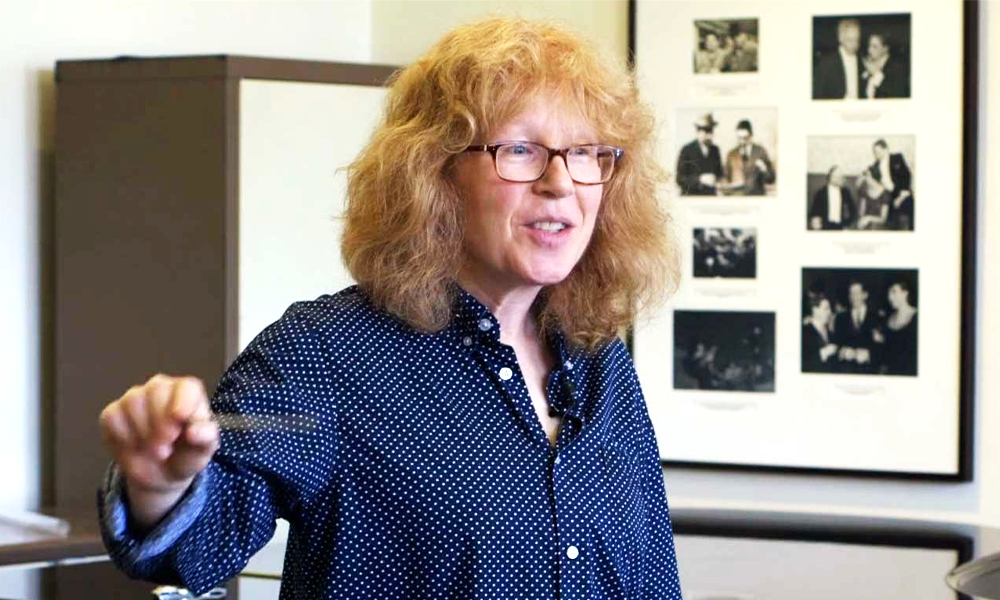Royal Academy of Music conductor, Sian Edwards, took to Zoom earlier this week to impart her ensemble leadership wisdom...
Whether you’ve never conducted before or are a little rusty after spending a year in lockdown, there’s plenty to be learned from Sian Edwards.
Born in West Sussex, the English musician is known for her inspiring work as Head of Conducting at the Royal Academy of Music in London, where she currently directs the Masters course and Sorrell Women’s Conducting Programme.
To celebrate the recent launch of Orchestras for All’s exciting new Music Leadership Training programme – specially designed to boost the skills of music teachers and community leaders – Sian joined online audiences for a webinar yesterday (23 February) to share her conducting experience.
Before the event, we caught up with the musical maestro (see video above) to find out more about how to work with an inclusive ensemble, handy techniques for teachers and why young people should join an orchestra.
Read more: Music Leadership Training programme launches with exclusive series of webinars >
“Just remember that music is all about breath,” says music educator Sian Edwards
When asked what piece of advice she would give to a new music leader, Sian said: “Just remember that music is all about breath. Your first in-breath and how you start the music is going to have so much influence on how the music sounds – even if your musicians aren’t really watching you at first!
“I think that’s a great basis for both the players and the conductors to start off from, and it makes us realise we’re all coming from a fundamentally very human place and unifies everybody straight away.”
Browse Orchestras for All’s upcoming webinars >
Speaking to young people about why they should join an orchestra, she added: “If you’re playing an instrument, it’s great to be playing with other people!
“Sometimes orchestras can seem very noisy and the sound isn’t in tune, so it can be quite a hard thing to get started with but as soon as you get used to the fact that you’re part of a group all working together, you’re going to get something at the end that makes you really quite proud.”
Sian Edwards, Head of Conducting at the Royal Academy of Music
Since graduating from the Royal Northern College of Music, Sian’s achievements have included conducting Kurt Weill’s Mahagonny for Scottish Opera (1986), Verdi’s La traviata at Glyndebourne (1987) and the world premiere of Mark-Anthony Turnage’s operatic masterpiece, Greek, at the Munich Festival in 1988.
In the same year, she made her debut at the Royal Opera House to lead musical performances of Tippett’s The Knot Garden and has also worked as Music Director at English National Opera, where she conducted Prokofiev’s The Gambler.























